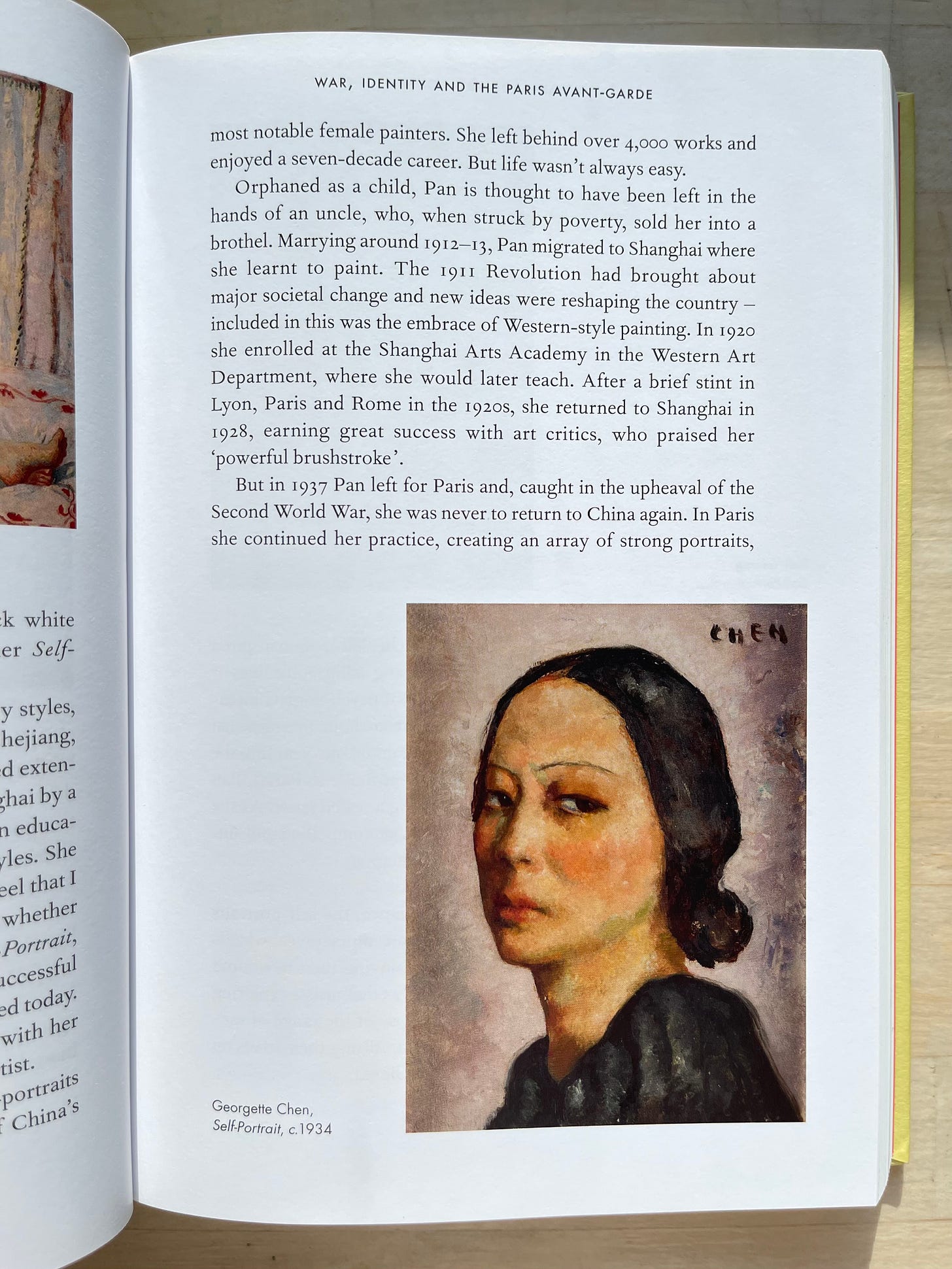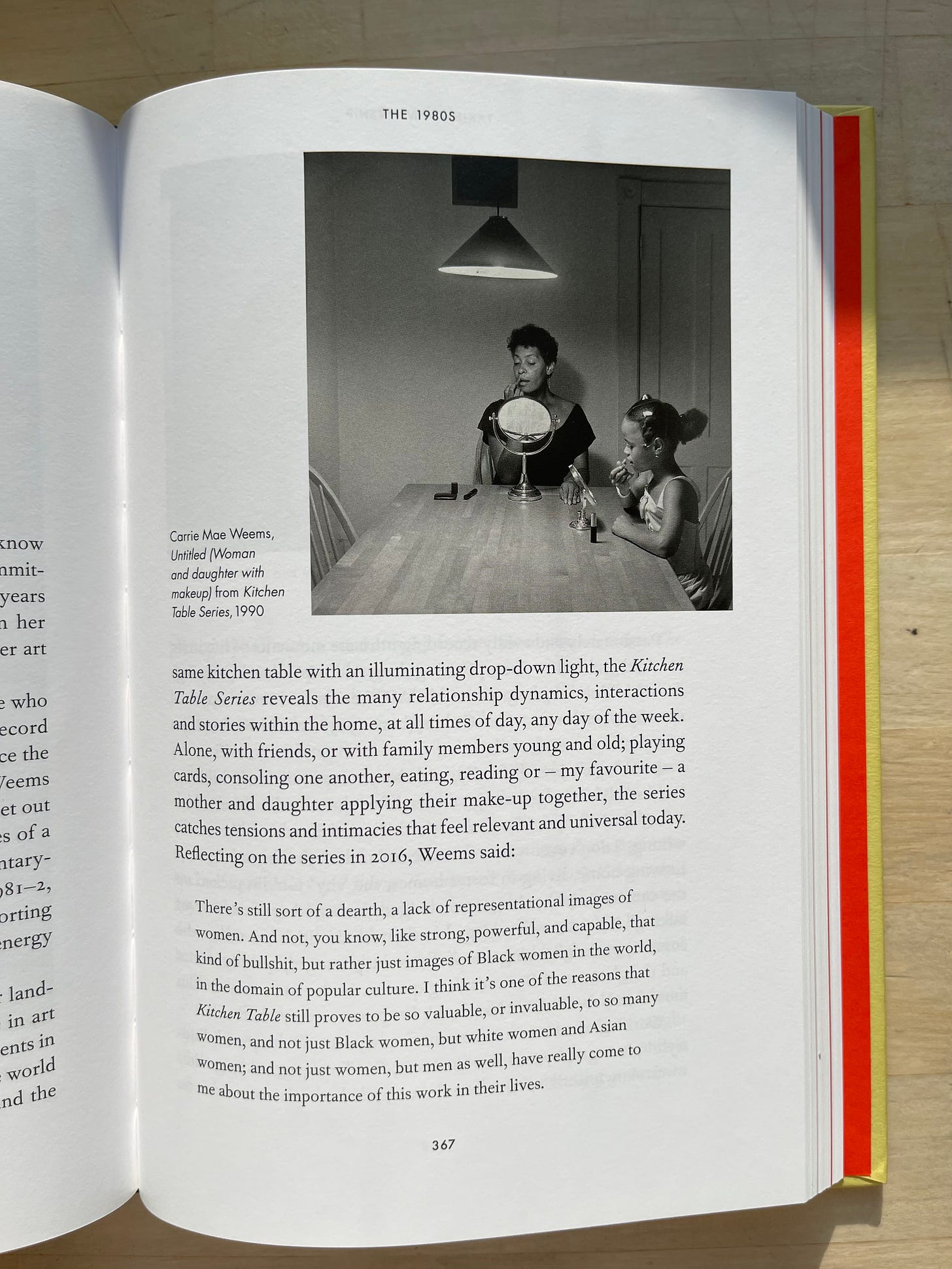Do you know that feeling when you learn something that instantly changes the way you view the world and makes you question everything you’ve seen before? That’s how I feel about this book. Once you realise that most of the art you’ve been consuming (since, like, forever!) is art made by straight, white men you start to wonder WHERE ARE ALL THE WOMEN ARTISTS?
Katy Hessel is an art historian, curator, broadcaster and the author of this life-changing 465 page book. She writes and hosts The Great Women Artists Podcast, where she has interviewed artists Marina Abramović and Lubaina Himid, and writers Ali Smith and Deborah Levy. British Vogue and the Evening Standard listed it among their best podcasts. Hessel also hosts Dior's podcast, Dior Talks – Feminist Art, which includes interviews with Tracey Emin and Judy Chicago.
There’s a lot to absorb from this book and I made my way through her over 6 months, a chapter at a time. Mostly to make time to meditate and yoga (and scream) away the rage each chapter filled me with. It’s an absolute disgrace that women have been erased from most of our history of art, and I’m truly excited for the changes that we are seeing happening around this now.
“In October 2015, I walked into an art fair and realised that, out of the thousands of artworks before me, not a single one was by a woman. This sparked a series of questions: could I name twenty women artists off the top of my head? Ten pre-1950? Any pre-1850? The answer was no. Had I essentially been looking at the history of art from a male perspective? The answer was yes.”
Born in Zhejiang, China, Georgette Chen (1906-93) spent her adolescent years in Paris and travelled extensively between China, France and the US. Trained in China by a Russian tutor, she studied in New York and later in Paris, an education that no doubt influenced her distinctive blending of styles. This is evident in her Self-Portrait, c1934 in which Chen commands our attention with her stern, inquisitive gaze, as if to certify herself as a serious artist.
Carrie Mae Weems1 (born 1953) picked up a camera for the first time in 1973 and set out to capture the beauty of the everyday. Challenging the stories of a white-dominated art world, she started out making documentary-style images. An early series Family Pictures and Stories, 1981-2, memorialises her multigenerational family loving and supporting each other, in large groups or candid shots, brimming with energy or in moments of quiet.
Turning the lens upon herself in 1989, Weems began her landmark Kitchen Table Series.’Landmark’, as for the first time in art history it elevated and gave precedence to the everyday moments in the lives of black women - images that the art world, and the world at large, would and still do so often dismiss.
A book to keep on your coffee table, buy her here.
Carrie Mae Weems has an exhibition on in London at The Barbican (22 Jun—3 Sep 2023)








I’m also obsessed with this book. I recently got it and slowly reading it as there’s so much to digest!